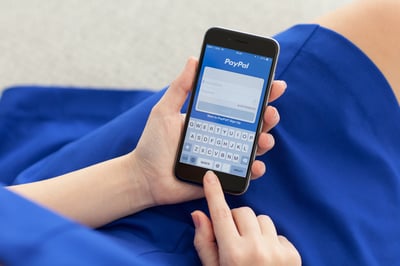 Newer phishing scams are looking for ways to make legitimate websites do the work of delivering malicious messages to unsuspecting victims – this new scam achieves it perfectly.
Newer phishing scams are looking for ways to make legitimate websites do the work of delivering malicious messages to unsuspecting victims – this new scam achieves it perfectly.
Millions of businesses rely on Paypal for not just sending and collecting payments, but also for invoicing customers. A new scam documented by security researchers at Avanan covers how scammers are taking advantage of legitimate Paypal functionality to send fake invoices as the hook for an email-based scam.
Because the emails with the illegitimate invoice are genuinely coming from Paypal, they are (with few exceptions) going to make it to a user’s Inbox. The goal of this scam is two-fold:
- Because the invoice comes from Paypal, victims must call the phone number provided by the scammer on the invoice – this gives the scammer the victim’s phone number (via caller ID) which can be used for future scams.
- The scammers attempt to get victims to pay the invoice, obtaining their credit card details.
Organizations can easily become the victim of such scams, as smaller contractors often use web-based invoicing and payment platforms – including Paypal – to ensure prompt payment of invoices. It’s not far-fetched to believe that scammers may perform diligence on a company to identify those in the Accounting or Finance department and use the scam to obtain payment on the false invoice – along with a corporate credit card and the direct phone number to the “sucker” that paid the bill.
Anyone with access to a corporate method of payment should undergo continual Security Awareness Training to be made aware of such scams, taught how to identify them, and to steer clear of them the moment they see these kinds of emails in their Inbox.
 Here's how it works:
Here's how it works:




